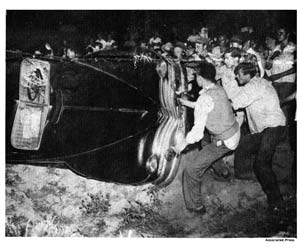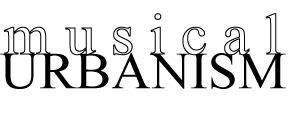August 27 marks a chilling anniversary in the Hudson Valley’s musical geography: 65 years ago, Paul Robeson was to perform a concert in Peekskill that culminated in violence and effectively ended his career. I asked sociologist Dick Flacks, author of Playing for Change: Music and Musicians in the Service of Social Movements, to elaborate.
Paul Robeson was, in the 1930s and 40s, was one of the best known Americans on the planet. His magnificent voice channeled the songs of the slaves; he performed to much applause Othello and the Emperor Jones; he was able to defy Hollywood stereotyping in several starring roles in movies. By the mid-thirties he was speaking out politically — going to Spain to sing for the International Brigades, going to the USSR which he experienced as moving beyond racism, and then, during the war, performing ‘songs of free men’ on record and radio to rally opposition to fascism. In the postwar years, Robeson was a leading critic of American cold war policy, supporting the 3rd party presidential run of former vice president Henry Wallace, vocally defending the Soviet Union, identifying with the anti-colonial struggle in the 3rd world, and militantly seeking to end Jim Crow in the US.
A big benefit concert by Robeson, planned for an outdoor site at Peekskill NY on August 27, 1949, was prevented by mobs, some chanting racist epithets. Determined not to be stopped from performing, Robeson agreed to a second date, sponsored and protected by several progressive unions. That event took place, attended by 20,000, only to be followed by a wild mob onslaught on those leaving the venue, attacks largely unchallenged by the police. Robeson, now depicted as a communist tool, had some 80 concert dates cancelled, and eventually was totally blacklisted — losing record contracts as well as concert bookings and barred from any foreign travel.
The Peekskill concert took place at the Lakeland Acres picnic ground — technically located in the neighboring suburb of Van Cortlandtville, both in Westchester County. I think there’s a Toll Brothers housing subdivision where the picnic grounds used to be.

“Rioters wreck a car on the night of Aug. 27, when Robeson had originally been scheduled to give a concert in Peekskill.”
Much has been written about the Peekskill riots. The event has a fairly extensive Wikipedia page, and here is a well-researched 1982 article from the White Plains Reporter Dispatch. Another vivid, semi-historical account is found in E.L. Doctorow’s 1971 novel The Book of Daniel, where a fictionalized Julius Rosenberg is beaten by the Peekskill mobs. In real life, it’s not thought that Julius attended the concert, but Paul Robeson did add his voice to the leftist protest against their 1953 death sentence.
Here’s a recent low-budget documentary about the Peekskill riots, including commentary by the late Pete Seeger, who was in attendance at Peekskill (and whose adopted hometown of Beacon, NY, is some 20 miles north up the Hudson River).
Finally Dick Flack focused on the career of Paul Robeson and the 65th anniversary of the Peekskill Riots in a recent broadcast of his UC Santa Barbara radio show “The Culture of Protest.” That link goes to an MP3, so left-click/control-click as needed.
